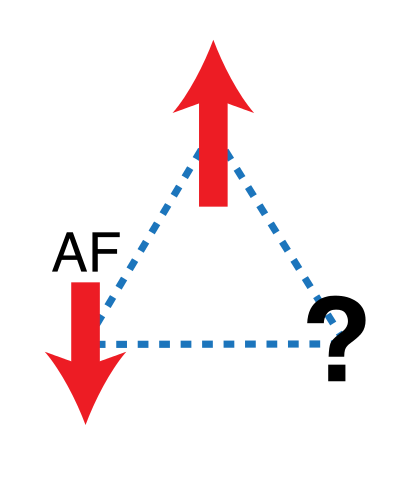I believe that it is true as long as there does not exist a non-trivial unitary operator $U$ that commutes with the Hamiltonian ($[H,U] = 0$) in the subspace of ground states. If such an operator exists then for a ground state $|\phi_0\rangle$ with energy $E_0$ we have $$HU|\phi_0\rangle = UH|\phi_0\rangle = E_0\left(U|\phi_0\rangle\right)$$ and so $U|\phi_0\rangle$ also has the lowest possible energy $E_0$ and it thus also a ground state. Note that the statement of non-triviality of $U$ is important. It needs to be non-trivial in the subspace of ground states, that is $U|\phi_0\rangle \neq e^{i\theta}|\phi_0\rangle$ for any phase $\theta$, otherwise there is no degeneracy. (Unitarity is needed so that $U|\phi_0\rangle$ is a state with norm 1)
More succinctly, if there exists a unitary operator $U$ such that $[H,U]=0$ and $U|\phi_0\rangle\neq e^{i\theta}|\phi_0\rangle$ for any phase $\theta$ then we have ground state degeneracy.
In the example you have given we see that the matrix elements in the basis given $\{|a\rangle,|b\rangle,|c\rangle\}$ is $$H = \begin{pmatrix}1&0&0\\0&1&0\\0&0&2\end{pmatrix}$$ from which we see there exists a unitary operator, with matrix elements $$U = \begin{pmatrix}0&1&0\\1&0&0\\0&0&1\end{pmatrix}$$ which commutes with $H$ and is non-trivial in the ground-state space.
Proof that non-existence of $U$ implies non-degenerate ground state:
Assume $\nexists U$ s.t. $\{[H,U]=0 ~~\mbox{and}~~ U|\phi_0\rangle \neq e^{i\theta}|\phi_0\rangle\}$
Now, for every state $|a\rangle$ and $|b\rangle$, $\exists U_{ab}$ which is unitary that takes us from $|a\rangle\rightarrow|b\rangle$. We are interested in the operator that take us from $|\phi_0\rangle$ to any $|a\rangle$ in our Hilbert space (which obviously includes all possible ground states), which we denote by $U_{a0}$. This means that any state $|a\rangle$ can be written as $|a\rangle = U_{a0}|\phi_0\rangle$. By our starting assumption $U_{a0}$ either satisfies
$$(1)~~~~~~ [H,U_{a0}]\neq 0,~~~~~~~~\mbox{or}~~~~~~~~(2)~~~~~U_{a0}|\phi_0\rangle = e^{i\theta}|\phi_0\rangle$$
If (1), then we have $$H|a\rangle = H U_{a0}|\phi_0\rangle \neq U_{a0}H|\phi_0\rangle = E_0|a\rangle~~~\implies~~~H|a\rangle \neq E_0|a\rangle$$
and so $|a\rangle \neq |\phi_0\rangle$ is not a ground state.
If (2), then $|a\rangle = e^{i\theta}|\phi_0\rangle$ and so $|a\rangle$ and $|\phi_0\rangle$ represent the same state.
Thus the non-existence of $U$ implies the non-existence of a second ground state and thus non-degeneracy.

